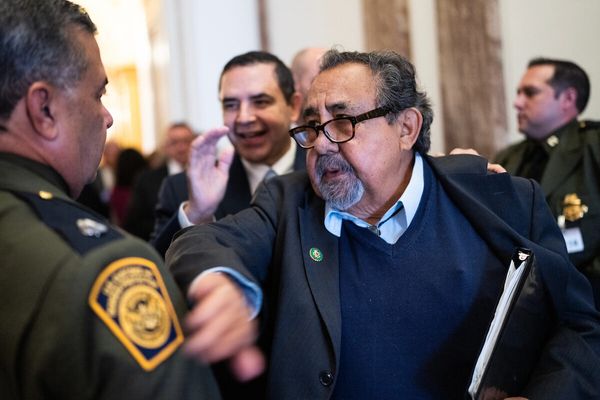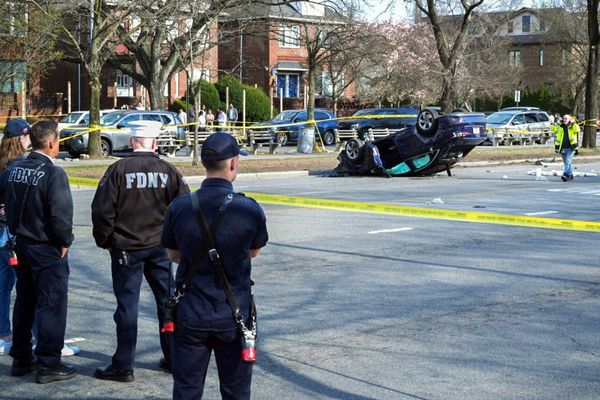
Xi opened the week-long, twice-a-decade session with a speech touting China's fight against Covid-19. Over 2,300 delegates are attending the conclave that will conclude on 22 October.
However, little is known about who will be promoted into which key roles on the Politburo and its seven-member Standing Committee. This comes as leaders face a difficult time. The world's second-largest economy is slowing and facing a potentially painful rebalancing of its investment- and property-led model.
Here's a quick look at the week long conclave
Events:
The conclave began on 16 October at 10 am (0200 GMT) in the vast Great Hall of the People on the west side of Tiananmen Square in Beijing.
The event, gathering 2,296 Communist Party delegates, began with a speech by Xi, who has been in power since 2012. He read a lengthy report in a televised speech that reviews the party's achievements of recent years and outlines broad-brush priorities for the next five years.
In the mostly closed-door conclave, the delegates will also pick members of the party's roughly 200-member Central Committee, which in turn selects the 25-person Politburo and its all-powerful Standing Committee -- the country's highest leadership body.
According to an editorial in People's Daily the Congress will "plan out the goals, tasks and major policies for the development of the party and the country for the next five years or even longer".
The day after the congress ends on Saturday, Xi is expected to introduce his new Politburo Standing Committee, a seven-person leadership team. It will include the person who will replace Li Keqiang as premier when Li steps down from that post in March after serving the maximum two terms.
Xi's speech on opening ceremony:
Xi opened the week-long session with a speech touting China's fight against Covid-19, the party's safeguarding of national security, maintaining social stability, protecting people's lives and taking control of the situation in Hong Kong, which was rocked by anti-government protests in 2019. He also called for accelerating the building of a world-class military.
In the work report from which his speech was drawn, Xi used the terms "security" or "safety" 89 times, up from 55 times in 2017, according to a Reuters count, while his use of the word "reform" declined to 48 from 68 mentions five years ago.
Xi said it was up to the Chinese people to resolve the Taiwan issue and China would never renounce the right to use force but will strive for a peaceful resolution. Taiwan, which China views as its own territory, responded that it will not back down on its sovereignty or compromise on freedom and democracy.
*China will enact policies to boost its birth rate, Xi said, as policymakers worry that an imminent decline in China's population could hurt the world's second-biggest economy.
Covid precautions for the meet
The meet is being held under a strict zero-Covid policy, which sealed organisers and journalists in a virus-secure bubble two days in advance.
Participants have been asked to take daily Covid tests to attend events, some of which are being held remotely by video link instead of in person.
At a hotel in western Beijing, organisers have set up a press centre crammed with exhibitions extolling Xi, festooned in the Communist Party's signature red and gold.
Scattered around the venue were tables piled with books on Xi's philosophy and China's development.
China stance on Covid-zero policy
China will make its Covid-19 prevention measures more scientific, accurate and effective, a party spokesman said on Saturday, while reiterating Beijing's stance that its pandemic approach is the right one.
One of the key issues to be discussed is whether or not to maintain the strict zero-Covid strategy, the policy that has strengthened social control over Chinese citizens, whose every move is now computer-registered.
While state media this week hammered home the notion that "lying flat" in the face of the virus would be "irresponsible", zero-Covid has caused widespread hardship and pulled the handbrake on China's economy.
The country's near-closure to the rest of the world and repeated lockdowns have stifled the economic growth rate, which this year is set to be China's weakest in four decades, excluding 2020 when the global economy was hammered by the emergence of coronavirus.
Protests censored
In the run-up to the meeting, China's internet censors removed virtually all references to reports of a rare protest in Beijing that involved banners denouncing Xi and the country's Covid policies.
Video footage and photos shared on social media on Thursday appeared to show a protester draping two hand-painted banners on the side of a bridge with slogans criticising the Communist Party's policies.
The son of a Communist Party revolutionary, Xi has reinvigorated a party that had grown deeply corrupt and increasingly irrelevant, expanding its presence across all aspects of China. Xi did away with presidential term limits in 2018, clearing the way for him to break with the precedent of recent decades and rule for a third five-year term, or longer.
(With agency inputs)







